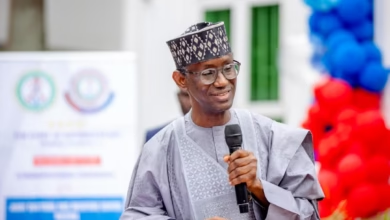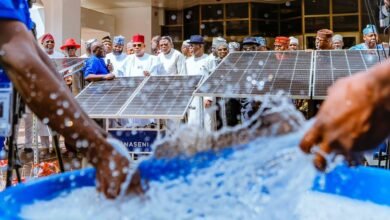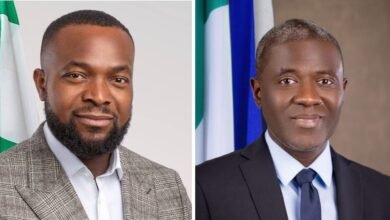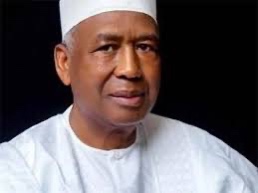Opinion
The Inside Story: Diplomatic Shuttles Behind Nigeria’s Victory at the GECF
By Eyimofe Amajuoritse
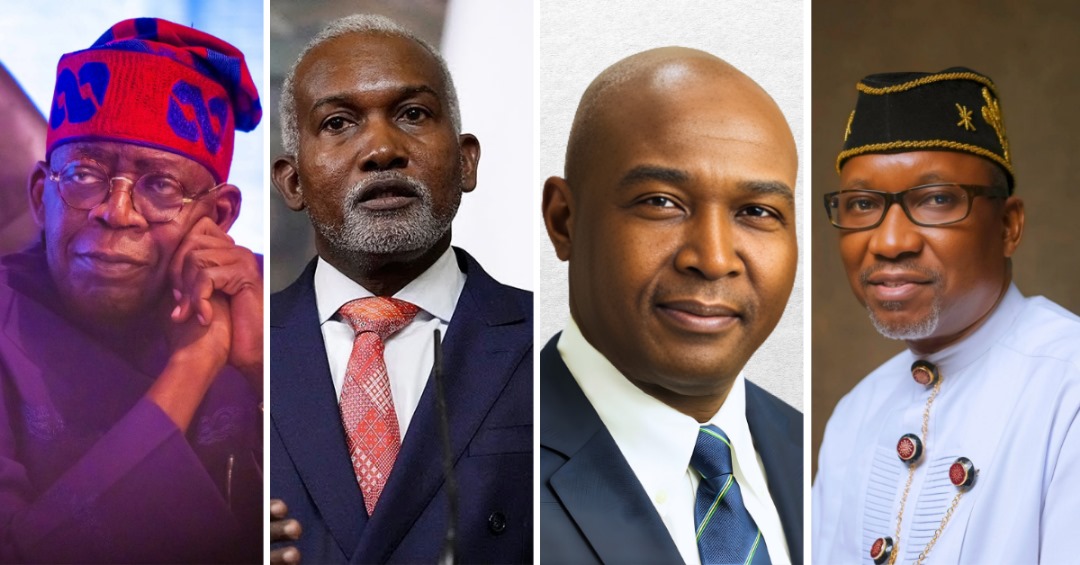
Yesterday, Nigeria’s Dr Philip Mshelbila, Managing Director of Nigeria LNG Limited (NLNG), was elected Secretary-General of the Gas Exporting Countries Forum (GECF) at its 27th Ministerial Meeting in Doha, Qatar.
Founded in 2001 and formalised in 2008, the GECF is an intergovernmental organisation headquartered in Doha. It serves as a platform for major natural gas producers to coordinate development strategies, exchange information and foster dialogue between producers and consumers—all aimed at ensuring stability in global supply.
The Forum comprises 12 member states—Algeria, Bolivia, Egypt, Equatorial Guinea, Iran, Libya, Nigeria, Qatar, Russia, Trinidad and Tobago, the United Arab Emirates and Venezuela—with observers including Kazakhstan, Iraq, Norway and the Netherlands. Collectively, its members hold between 67% and 71% of global proven gas reserves, account for 40–44% of production and more than half of liquefied natural gas (LNG) exports.
Dr Mshelbila’s election is a vote of confidence in Nigeria’s technical competence and leadership within the global gas sector. The meeting also saw Nigeria’s Minister of State for Petroleum Resources (Gas), Ekperikpe Ekpo, appointed President of the 2026 GECF Ministerial Meeting. President Bola Tinubu congratulated both men, reiterating that natural gas remains central to Nigeria’s industrial expansion, energy security and economic transformation under the Renewed Hope Agenda.
Nigeria is the world’s 19th-largest gas producer and the third-largest in Africa, with proven reserves exceeding 210 trillion cubic feet. Its newfound leadership at the GECF will strengthen its leverage in influencing global production and pricing, while promising to secure a greater share of the international gas market.
The country has positioned itself as a champion of natural gas as a transition fuel in the global shift towards cleaner energy. It has ramped up gas production, reduced gas flaring and made significant investments to expand supply infrastructure—all while aligning with climate goals.
According to diplomatic insiders, Nigeria’s victory was the result of skilful diplomacy led by the Minister of Foreign Affairs, Ambassador Yusuf Tuggar. Through a series of bilateral meetings, coalition-building efforts and quiet negotiations, he and his team were able to secure broad support for Nigeria’s candidacy at the GECF.
Ambassador Tuggar’s strategic engagements with Trinidad and Tobago, Algeria, Venezuela, the UAE, Qatar, Egypt and Equatorial Guinea proved crucial in Nigeria clinching both positions.
In a statement, Ambassador Tuggar described the dual success as evidence of President Tinubu’s proactive foreign policy and strategic ambition to restore Nigeria’s clout in global energy diplomacy under the Renewed Hope Agenda.
He outlined the Ministry of Foreign Affairs’ efforts, including directives to Nigeria’s missions in all GECF member states to formally launch the campaign and mobilise African support.
“Nigeria’s missions were activated to engage and lobby voting members, in close coordination with bilateral engagements conducted at key summits such as the BRICS Summit in Brazil and the African Union’s 7th Mid-Year Coordination Meeting in Malabo, Equatorial Guinea. The process also benefited from high-level political backing from the Presidency, ensuring Nigeria’s candidature received broad-based support.”
Ambassador Tuggar praised Dr Mshelbila and Minister Ekpo for their credentials and experience, calling the outcome a “victory not only for Nigeria but for Africa’s collective voice in global energy governance.” He expressed confidence that both men would strengthen the GECF’s role in managing the global energy transition, promoting fair resource use and advancing sustainable development.
The GECF’s Ministerial Meeting is its highest decision-making organ. Below it sit the Executive Board and the Secretariat, which is led by the Secretary-General. The organisation conducts analytical studies on global gas market trends, facilitates data exchange among member states and advocates for the sovereign rights of members over their natural gas resources. Its broader mission is to encourage cooperation for energy security and sustainable development worldwide.
Eyimofe Amajuoritse is a journalist covering Nigeria’s foreign relations.

